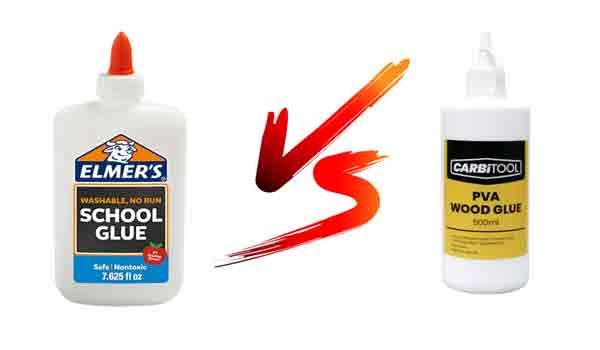Everything About Vinyl Plank Glue Down Flooring
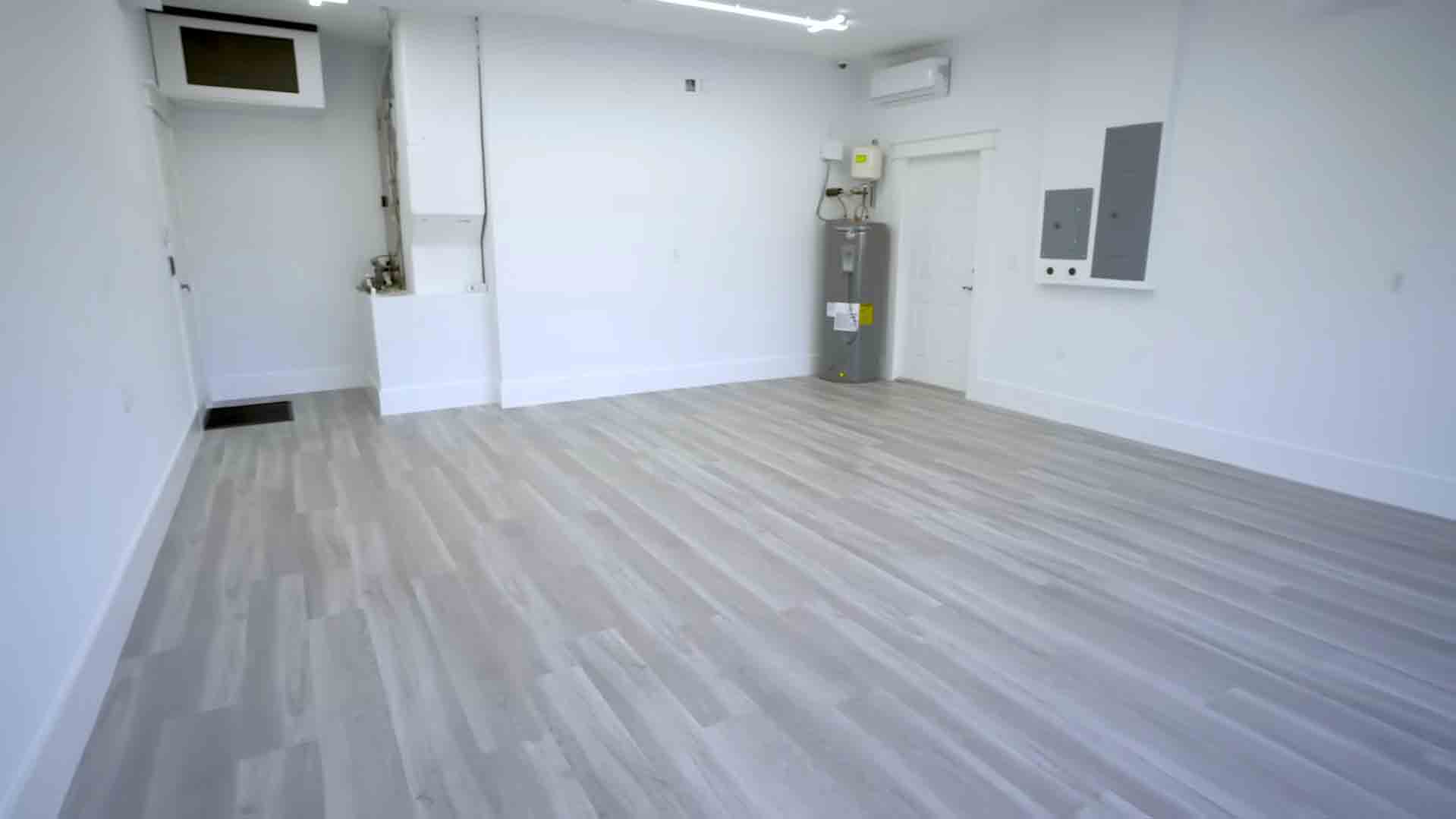
Vinyl plank glue down flooring offers a durable and stylish solution for homeowners seeking a resilient and low-maintenance flooring option.
Its ease of installation and wide array of design makes it a popular choice for modern interiors. Let’s find out everything about glue-down vinyl plank flooring.
What Is Vinyl Plank Flooring?
Vinyl plank flooring is a durable and versatile synthetic flooring option. Comprising an outer layer made of PVC for enhanced durability, and a core layer of foam for stability and comfort. Vinyl plank flooring mimics the look of wood while being resistant to water, scratches, and wear.
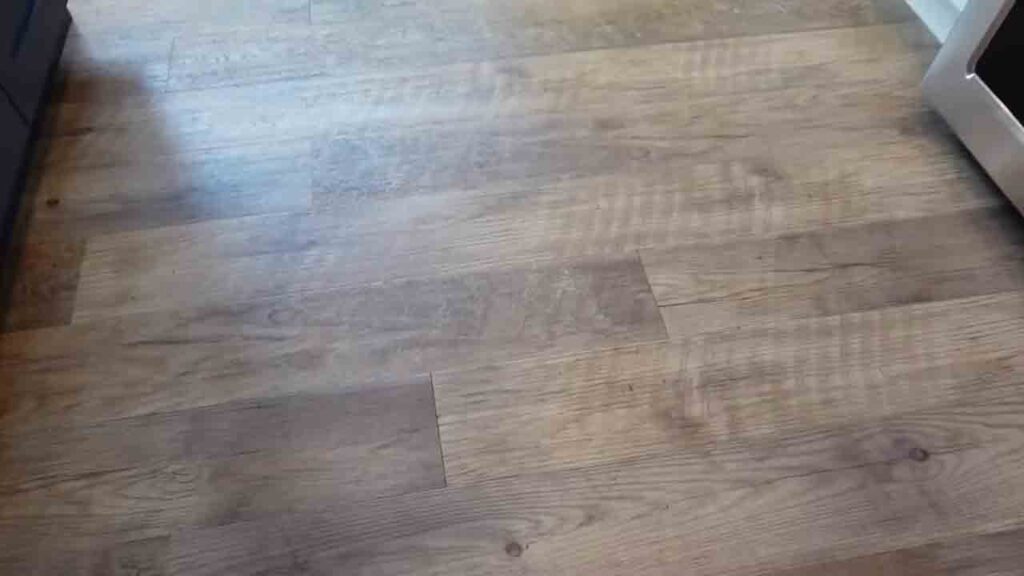
What Is Glue Down Vinyl Plank Flooring?
Glue-down vinyl plank flooring is a type of flooring installation where individual vinyl planks are directly adhered to the subfloor using a specially formulated adhesive.
What Is The Flooring Called That You Glue Down?
The type of flooring that is glued down is commonly referred to as “glue-down flooring” or “adhesive flooring.” This method involves applying a strong adhesive to the subfloor and then attaching the flooring material directly to it.
Does Vinyl Plank Flooring Need To Be Glued Down?
Vinyl plank flooring typically comes in two installation options: floating or glued down. Floating installation doesn’t require adhesive, as planks interlock. However, some situations, like high-traffic areas or commercial spaces, may benefit from gluing down the planks for added stability.
How Long Does Glue Down Vinyl Plank Flooring Last?
Glue-down vinyl plank flooring typically lasts 15 to 20 years with proper installation and maintenance.
How Thick Is Glue Down Vinyl Plank Flooring?
Glue-down vinyl plank flooring typically comes in thicknesses of 2mm and 3mm. The thickness you choose depends on your specific needs and preferences, with 2mm providing a thinner profile and 3mm offering a slightly thicker and more robust option.
How Long Does It Take For Vinyl Plank Glue To Dry?
Vinyl plank glue typically takes 12 to 20 hours to dry completely. The exact drying time can vary based on factors such as humidity and temperature.
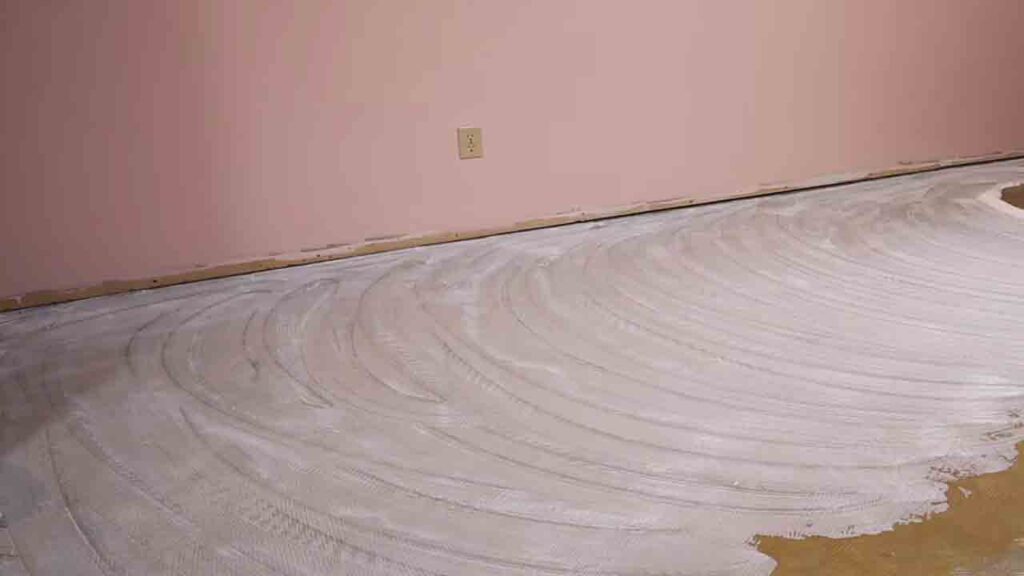
Read More About Is Blue Loctite Gasoline Resistant?
Pros And Cons Of Glue Down Vinyl Plank Flooring
Pros Of Vinyl Plank Flooring
- Waterproof
- Range Of Colors and Patterns
- Highly Durable
- Easy To Clean
- Scratch Resistant
- Comfortable
- Looks Like Timber
Cons Of Vinyl Plank Flooring
- Can Be Toxic
- Color Change
- Tough To Remove
- Nonbiodegradable
- Can’t Be Repaired
Can I Glue Vinyl Plank Flooring To Concrete?
Gluing vinyl plank flooring directly to concrete is a common installation method. Ensure the concrete surface is clean, dry, and level before applying adhesive.
Can You Glue Vinyl Plank Flooring To Tile?
Yes, you can glue vinyl plank flooring to tile. Ensure the tile surface is clean and level before applying adhesive. Use a recommended flooring adhesive, and follow manufacturer instructions.
Does Glue Down Vinyl Flooring Expand?
Yes, glue-down vinyl flooring can expand slightly due to changes in temperature and humidity. It’s important to leave an expansion gap around the edges during installation.
What Destroys Vinyl Plank Flooring?
Vinyl plank flooring can be damaged by excessive moisture, sharp objects, heavy furniture, and direct sunlight. Scratches, dents, and water exposure are common culprits. Proper maintenance and protection can help extend the lifespan of vinyl plank flooring.
What Is The Strongest Glue For Flooring?
Epoxy and polyurethane adhesives are preferred for their superior bonding strength, durability, and moisture resistance. PVA glue may not provide sufficient adhesion and durability for flooring applications.
Is Vinyl Plank Slippery When Wet?
Vinyl plank flooring is generally less slippery when wet compared to traditional hardwood or tile flooring. The textured surface of many vinyl planks provides better traction.
Best Glue Down Vinyl Plank Flooring
Here are a few brands that were known for producing quality glue-down vinyl plank flooring:
1. Tivoli Self-Adhesive Vinyl Floor Planks
Tivoli offers durable glue-down vinyl planks with self-adhesive backing, ensuring easy installation and a resilient flooring solution for various spaces.
2. FloorPops Vinyl Floor Planks
FloorPops excels in crafting stylish and high-quality glue-down vinyl planks, combining aesthetics with easy installation for a versatile and attractive flooring choice.
3. Nexus Self-Adhesive Vinyl Floor
Nexus presents self-adhesive vinyl planks, known for their reliability and simplicity in application, providing a cost-effective and visually appealing solution for any room.
4. Achim Self-Adhesive Wood Plank
Achim’s self-adhesive wood plank vinyl flooring stands out for its authentic wood appearance and hassle-free installation, offering a durable and stylish option for various settings.
Glue Down Vs Floating Vinyl Plank Flooring
Each has its own set of advantages and disadvantages. Here’s a brief overview of both:
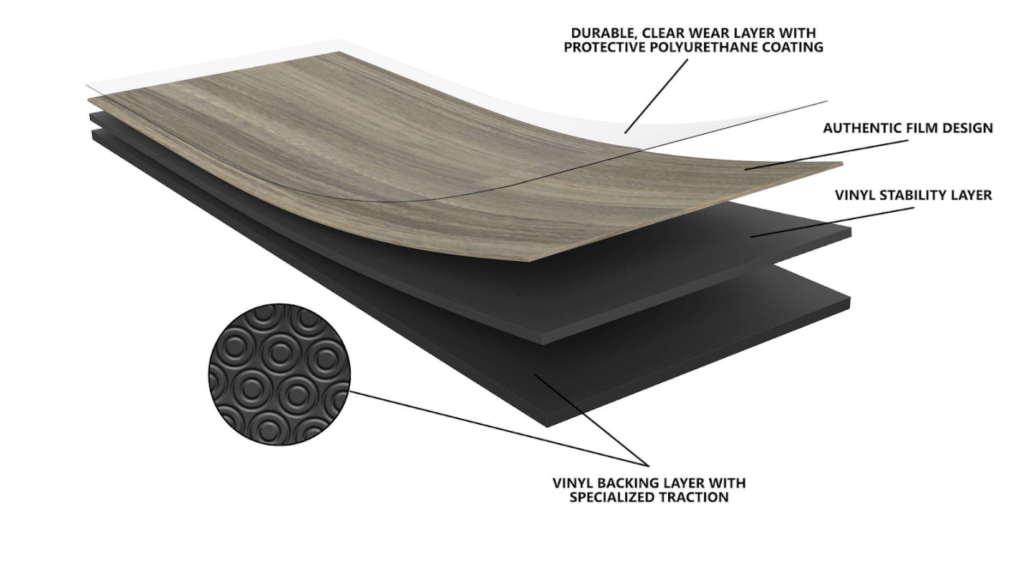

| Aspect | Glue Down Vinyl Plank Flooring | Floating Vinyl Plank Flooring |
| Suitable Environments | Restaurants, office spaces, retail stores | Versatile, residential, some commercial settings |
| Installation Method | Requires adhesive for attachment to the subfloor | Interlocking or click-and-lock system, no adhesive needed |
| Support and Stability | Provides extra support due to direct adhesion | Relies on the integrity of the interlocking system |
| Removal Process | Easy removal with the use of solvents, may leave residue | Removal process is more complex, may involve disassembly |
| Durability | Generally more durable due to secure attachment | Less durable compared to glue-down, especially in high-traffic areas |
| Cost | Typically more expensive due to additional materials and labor | Generally cheaper, both in terms of materials and installation |
| Installation Speed | Generally takes longer due to the adhesive application | Faster installation due to the floating nature and click-lock system |
| Moisture Resistance | Better resistance to moisture due to secure adhesion | Can be susceptible to moisture if not properly sealed at seams |
| Overall Installation Cost | Higher upfront costs but potential long-term savings | Lower upfront costs but may incur higher long-term maintenance expenses |
Is Glue Down Vinyl Plank Better Than Floating?
The choice between glue-down and floating (Click Vinyl Plank Flooring) vinyl plank flooring depends on various factors. Glue-down vinyl plank offers a more permanent and secure installation, making it suitable for high-traffic areas.
On the other hand, floating vinyl plank is easier to install, can be removed without damage, and is often a DIY-friendly option. The decision ultimately depends on your specific needs, preferences, and the conditions of the space.
Vinyl Plank Glue Down Vs Snap Together
Here’s a table outlining the key differences between Vinyl Plank Glue Down and Vinyl Plank Snap Together:
| Feature | Glue Down | Snap Together |
| Installation Method | Requires adhesive | Interlocking system |
| Ease of Installation | Generally more involved | Typically easier and faster |
| Flexibility | Less flexible during installation due to adhesive | More flexible during installation |
| Removability | Can be more challenging to remove | Easier to uninstall and replace |
| Application | Suitable for various subfloors, including uneven ones | Best on even and smooth subfloors |
| Maintenance | Can be harder to replace individual planks | Easier to replace individual planks |
| Cost | Installation may be more expensive due to adhesive | Generally less expensive to install |
| Noise Level | Tends to be quieter due to direct attachment | May produce more noise during installation |
Read Also Will glue down vinyl flooring warp or bend?
What Is Better Laminate Or Vinyl Plank Flooring?
The choice between laminate and vinyl plank flooring depends on your specific needs and preferences. Laminate flooring typically has a rigid core and is resistant to scratches, but it may not handle moisture as well as vinyl.
Vinyl plank flooring is waterproof and often more durable in areas prone to water exposure. Consider factors such as budget, maintenance, and the room’s use when deciding between laminate and vinyl plank flooring.
Reasons to Choose Glue-Down Vinyl Plank Flooring
- Durability
Glue-down vinyl plank flooring is known for its durability, making it a long-lasting flooring option.
- Stability
The glue-down installation method ensures a stable and secure floor, minimizing movement and potential damage over time.
- Versatility
It is a versatile flooring choice, available in a variety of styles and designs to suit different preferences and interior aesthetics.
- Moisture Resistance
The glue-down installation provides additional moisture resistance, making it suitable for areas prone to dampness.
- Easy Maintenance
Glue-down vinyl plank flooring is easy to maintain, requiring simple cleaning routines to keep it looking new and attractive.
How To Install Glue-Down Vinyl Plank Flooring
Installing glue-down vinyl plank flooring is a step-by-step process that requires careful preparation and attention to detail.
Step 1: Prepare the Subfloor
Ensure the subfloor is clean, dry, and level. Remove any debris, dust, or imperfections. Repair any cracks or uneven areas in the subfloor using a suitable filler.
Step 2: Measure and Plan
Measure the dimensions of the room to determine the layout and decide where to start the installation.
Step 3: Apply Adhesive
Choose a high-quality adhesive recommended by the flooring manufacturer.
Step 4: Start Laying the Plank
Start in a corner of the room and lay the first plank, ensuring it is aligned with the planned layout. Press the plank firmly into the adhesive, and use a rubber mallet or a tapping block to ensure a snug fit.
Step 5: Continue Applying
Apply adhesive to the next section using the same trowel technique. Stagger the seams between planks for a more natural and stable look.
Step 6: Repeat Until the Entire Floor is Covered
Work methodically, section by section, ensuring each plank is securely adhered to the subfloor.
Step 7: Allow to Dry
Allow the adhesive to dry (24–48 hours)completely according to the manufacturer’s instructions.
Problems With Glue-Down Vinyl Plank Flooring
Here are some common issues associated with glue-down vinyl plank flooring:
1. Adhesive Issues
- Improper Adhesive Selection: Using the wrong type of adhesive or not following the manufacturer’s recommendations can lead to bonding issues.
- Insufficient Adhesive: Applying too little adhesive can result in poor bonding, causing the planks to lift or separate over time.
2. Subfloor Preparation
- Uneven Subfloor
- Moisture Issues
3. Expansion and Contraction
If the flooring is not installed with the proper expansion gaps, it may lead to buckling or gaps between planks.
4. Installation Errors
Technique: Incorrect installation, such as improper alignment, can result in a visually unappealing floor.
5. Wear and Tear
While vinyl is generally resilient, heavy furniture or sharp objects can cause scratches or dents over time.
Is Glue-Down Vinyl Plank Flooring Good?
Glue-down vinyl plank flooring can be a durable and cost-effective option. It provides a stable and secure installation, but the quality may vary. Proper installation is crucial for optimal performance.
Why Avoid Vinyl Flooring?
Vinyl flooring may release volatile organic compounds (VOCs), which can impact indoor air quality. Additionally, it is not biodegradable and may contribute to environmental issues during production, use, and disposal.
What Is The Weakness Of Vinyl Flooring?
Vinyl flooring’s weaknesses include susceptibility to sharp objects and the potential for fading or discoloration with prolonged sunlight exposure. And vulnerability to certain chemicals that may damage the surface over time.
Does Vinyl Floor Crack Easily?
Vinyl flooring is durable and resistant to cracking when installed correctly. However, if not installed properly, it may be prone to cracking, especially in areas with heavy foot traffic.
Is Vinyl Flooring Expensive?
Vinyl flooring is generally considered affordable compared to many other flooring options. Its cost can vary depending on factors like quality, thickness, and design, but it’s often a cost-effective choice for budget-conscious consumers.
Glue Down Vinyl Flooring Price
Glue down vinyl flooring typically ranges from $1 to $2 per square foot. Prices may vary based on brand, quality, and additional features. It’s essential to consider installation costs as well.
FAQs
Is Glue Down Vinyl Plank Waterproof?
Yes, glue-down vinyl plank is waterproof as it forms a tight bond with the subfloor, preventing water from seeping through.
What Is Wpc Vinyl Flooring?
WPC vinyl flooring, or Wood Plastic Composite vinyl, is a type of resilient flooring that combines wood and plastic components.
Is 2mm Vinyl Flooring Good?
Yes, 2mm vinyl flooring can be suitable for areas with low to moderate foot traffic, but thicker options offer more durability.
Does Vinyl Flooring Need Glue?
Not necessarily. Some vinyl flooring options come with a self-adhesive backing, eliminating the need for additional glue during installation.
Which Luxury Vinyl Plank Is Best?
The best Luxury Vinyl Plank is subjective, but Lifeproof Click-Lock is known for its durability, water resistance, and easy installation.
What Is Luxury Vinyl Plank?
Luxury Vinyl Plank (LVP) is a high-quality, durable flooring option that mimics the appearance of hardwood through realistic prints and textures.
Is Vinyl Flooring Fake?
Vinyl flooring is synthetic, replicating the look of natural materials. It’s not “fake” but a manufactured alternative to real flooring.
Conclusion
Choosing vinyl plank glue down flooring offers a durable and versatile solution for various spaces. The adhesive application ensures a secure and long-lasting bond, enhancing the flooring’s stability.
With a wide range of designs and textures, glue-down vinyl planks provide aesthetic appeal along with practical benefits. Consider this flooring option for a reliable and stylish choice in your home or commercial space.

